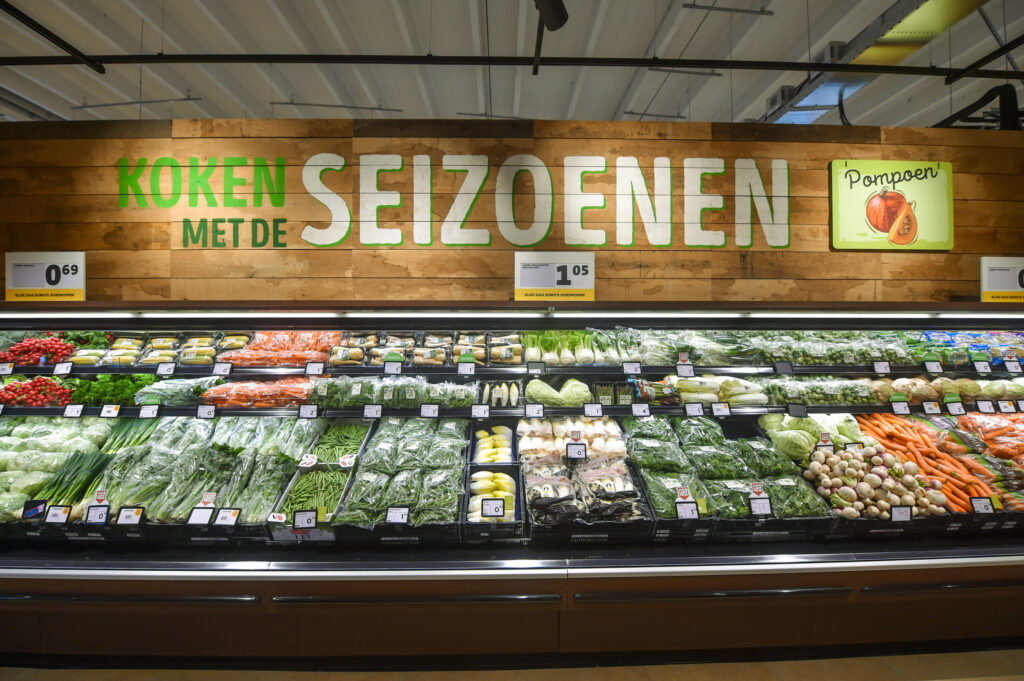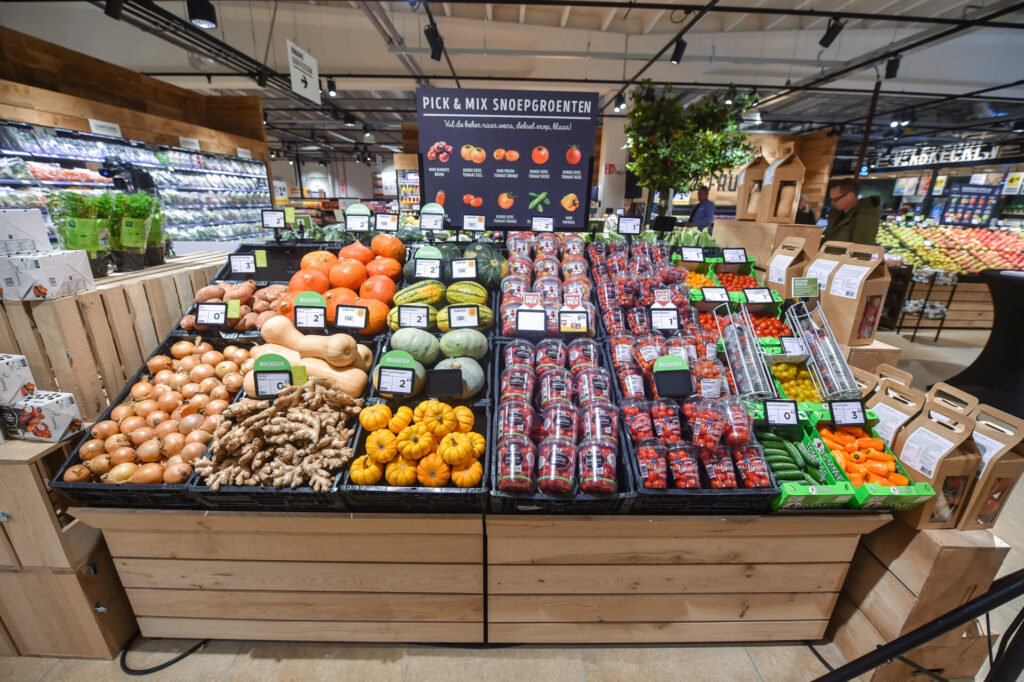After rising for five months, supermarket inflation fell to 2.81% in December (from 3.23% in November), according to the latest figures by consumer protection organisation Test-Achats.
While a drop in inflation seems like good news, prices are still going up. Additionally, inflation now is still higher than in January 2022, when it crossed the 2% mark for the first time.
"Although 2024 ends with a slight decrease in food inflation, which is undoubtedly good news, the prices of certain basic products are still very high," said Test-Achats spokesperson Laura Clays. "The strong inflation – to over 20% – that we saw in 2022 has not been followed by declines in food prices, quite the contrary."
Since January 2022, food inflation has never fallen below 2%. In real terms, this means that "prices are now more than 27% higher than January 2022," she said.

Vegetables in a Jumbo supermarket in Pelt. Credit: Belga
The fact that food prices never really returned to levels seen before the peaks in 2022 is partly due to diseases such as the bluetongue virus in cattle farms and poor harvests after droughts and heatwaves in some countries, as well as after heavy rains in others.
Compared to January 2022, groceries are on average 27% more expensive. Ketchup is 84% more expensive than in January 2022, mustard 71% more expensive, olive oil 63% and onions 59%. The greatest increases for 2024 were found in dark chocolate (+33%), olive oil (+24%) and orange juice (+21%). The price for a litre of olive oil is now over €13.
However, some products have come down in price. This is especially true for vegetables, which on average fell 4% in price (excluding potatoes). These include, for example, cauliflower (-14%) and iceberg lettuce (-13%).
Additionally, cling film (-9%) and wet wipes (-6%) also cost less than last year.
What will happen in 2025?
The Federal Planning Bureau expects a fall in the consumer price index, with inflation dropping below 2% in the second half of the year. These expectations are mainly based on expected (falling) energy prices and a stabilisation of commodity costs.
For food, however, it is very difficult to foresee how prices will evolve given the strong cascade effect in the sector, said Test-Achats. It can be expected that wage indexation will cause prices to rise, but other things are much more difficult to predict; an (energy) crisis is always a possibility.
The impact of the Mercosur agreements Europe signed with South America will also determine the future. But the exact impact of reduced customs tariffs on local producers is still unclear.
"The future is uncertain and consumers still face high prices today, but many families can save a lot on their shopping. Our analyses show that it is possible to save more than €500 a year for a household of two by changing its purchasing habits," said Clays.
Test-Achats has been tracking price trends in seven supermarket chains (Albert Heijn, Carrefour, Colruyt, Cora, Delhaize, Aldi and Lidl) for three years and calculating food inflation on that basis.

